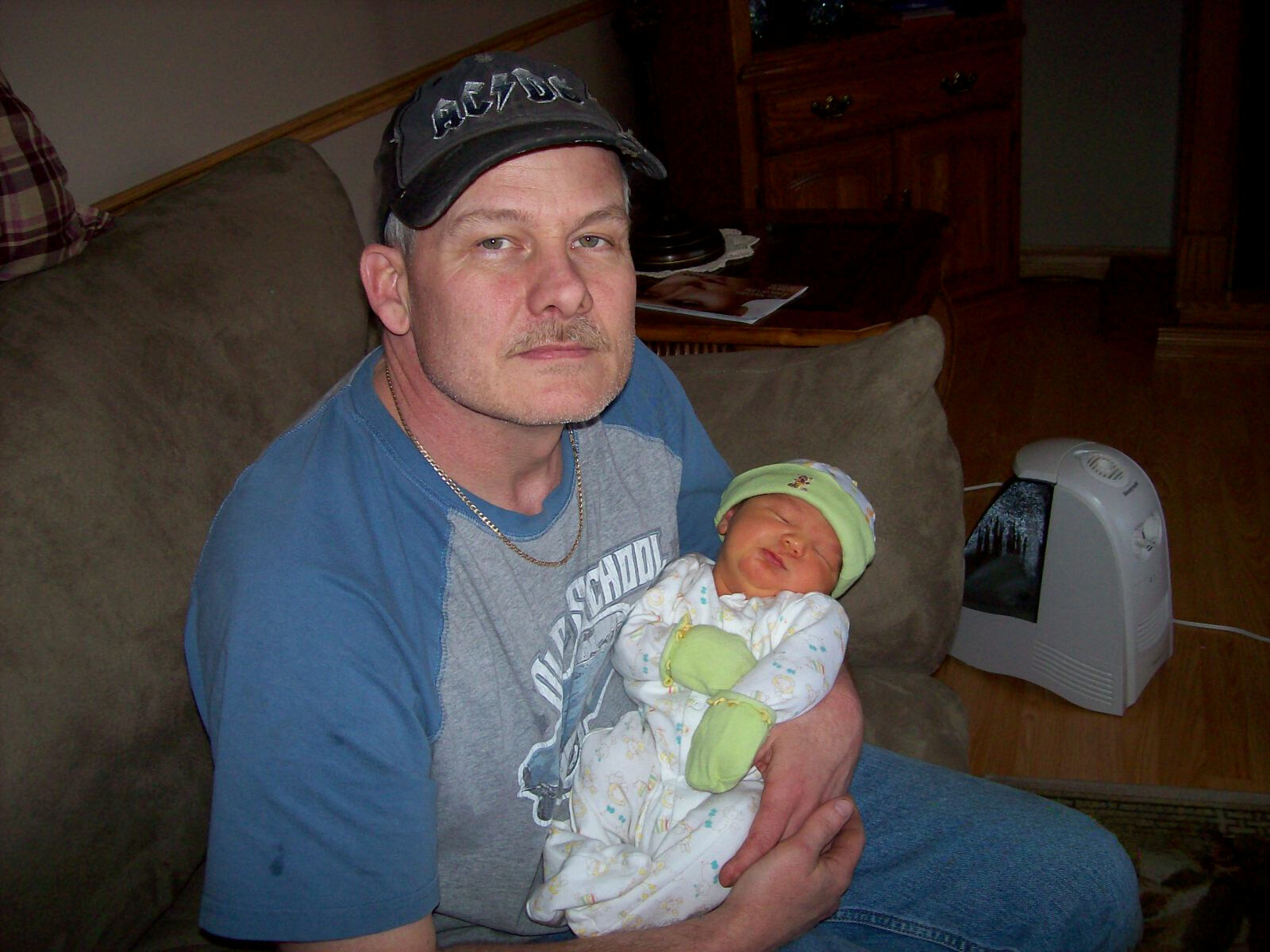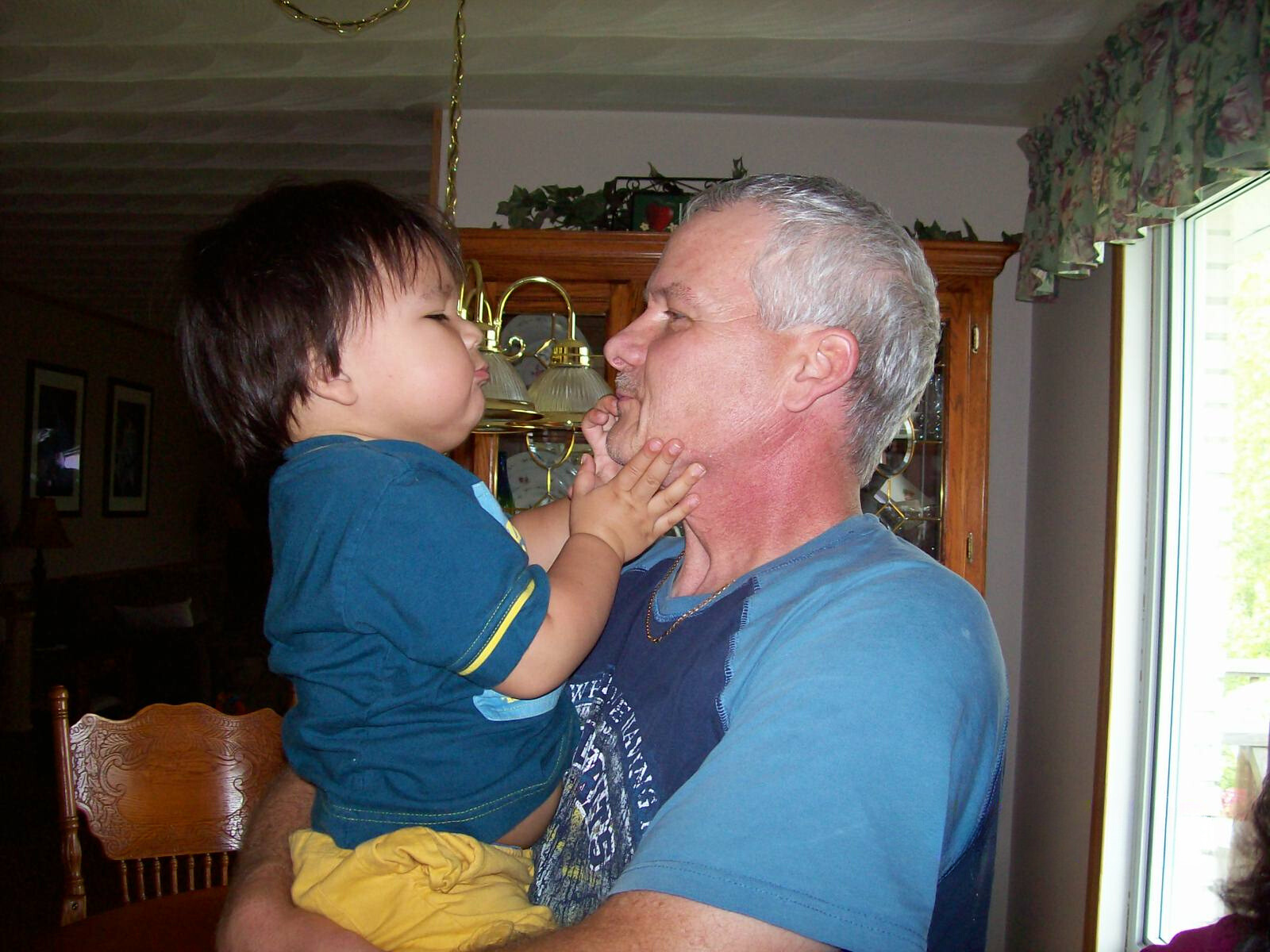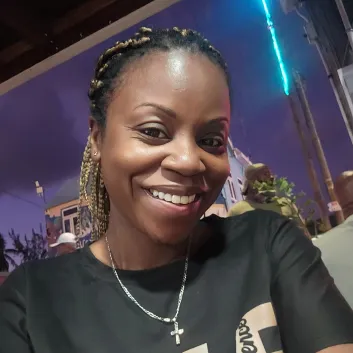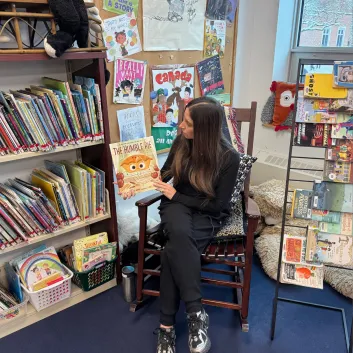- From the Community
- June 14, 2024
Father and Son
Chosen Family and Unwavering Devotion
My experiences with fatherhood and MS are deeply intertwined. Shortly before my MS diagnosis, I had another major life change. I was the on-call foster parent for special needs children at my local hospital, and I got a call about a baby who needed care. He was born drug-dependent and had been crying almost non-stop for three days. Nobody could calm him down. When I held him, he stopped crying and had a little smirk on his face. I’ll never forget that moment. I was crying, the nurses were crying. I ended up bringing him home and eventually adopted him. I couldn’t let him go.

He was born with severe autism and a sensory disorder, and was only a few months old when I was diagnosed with MS. I was already living with emphysema and now had a second chronic disease added to my plate. As my health declined, I couldn’t walk, talk, or even write my name. I battled with extreme dizziness where I had to keep my eyes closed for weeks at a time. I was partially paralyzed on one side and was always nauseous. The complete lack of energy was a shock and is something I still struggle with.
During the times when my MS symptoms were at their worst, I still needed to care for my son. My wife worked full time, so I was his main caregiver. When I couldn’t walk, I’d crawl around the house with him on my back. During the dizziness, nausea, and vision difficulties—he was there. We were in it together. I don’t know what I would have done without him.
In the beginning, I was tired and depressed, but I knew I had to take care of myself so I could take care of my son. I pulled myself up and moved forward. I’d always been active before my diagnosis, but living with two chronic diseases really forced me to prioritize my health. It was tough at first. When my mobility was more limited, I had to pace myself and use a cane, but as my treatment progressed and my symptoms eased over time, I was able to do more and more. Walking became jogging, which eventually became running ten miles a day. I believe in the power of exercise, not just for your physical state, but mental as well. It gives you something to do and makes you feel good about yourself. Not every day is 100%, but as long as I’m able to get out there and try, I call it a win.
When I think of the most prominent memories from the early stages of my MS experience, they all involve my son. Learning about his developing needs at the same time as my own propelled me in a direction I couldn’t have imagined before.

For 25 years, I’d been working in a fast-paced business environment, but after adopting my son and receiving my MS diagnosis, I shifted gears. I threw myself into understanding both of our conditions. I took a few psychology courses and became certified as a personal support worker and disability support worker. I wanted to learn everything I could to take care of my little boy and also wanted to give back and help others in need. Now I get to exercise the empathy and compassion I’ve developed on this journey every day, in my personal life and at work.
Life has a way of changing our perspectives. There was a time when I was all about the hustle and bustle of the business world. But then life threw me some curveballs. Suddenly it wasn't about the money anymore. It was about being a caregiver, about cherishing every moment with my loved ones, and about finding meaning beyond material wealth.
My son is fifteen now and our connection is something I cherish deeply. He’s never been able to talk, but we have our own way of communicating. We just look at one another and that’s all it takes. If I’m feeling down or tired, he’ll smile at me or give me a hug. And because of his sensory issue, he won’t hug you unless you really need it. I don’t know where I would be right now if he hadn’t come into my life when he did. To me, he’ll always be the little boy who saved his dad’s life.
MS gave me the opportunity to become the person I am now. It changed my life completely. At work, they jokingly call me ’the man with the patience of a stone.’ I tell my colleagues (and everyone else!) that I owe that patience to my son and to MS. MS may have slowed me down physically, but it also slowed me down enough to see what truly matters. It taught me to enjoy my family and to enjoy life. It's not about the things you own; it's about being the kind of person you can be proud of and someone others want to be around.
When you first hear the words, ‘You have MS,’ it can feel like the end of the world. But trust me, it's not. It's just the beginning of a different path—one where you can still live well and love deeply. MS isn’t a death sentence, it’s a life journey. Life doesn’t end with MS—you just have to learn to adapt. So, to anyone out there struggling with a similar diagnosis, don't hesitate to ask for help. You're not alone, and you're not defined by your illness. Embrace the journey, lean on your loved ones, and live your life to the fullest.
Looking for support for yourself or a loved one? Learn about our programs and services or connect with our MS Knowledge Network and speak with an MS Navigator.
Our MS Navigators are available to assist anyone in Canada from 8am to 8pm ET, Monday to Friday.
Phone: 1-844-859-6789
Email: msnavigators@mscanada.ca
Please note: Our team of MS Navigators are not healthcare professionals; individuals living with MS are encouraged to talk with their healthcare team to discuss their options in managing their MS symptoms.
The MS Knowledge Network is not a distress centre or a crisis organization. If you’re in immediate need of support call 9-1-1, 9-8-8, or go to your nearest hospital. There are a number of additional mental health supports available across Canada for all ages.
- Log in to post comments

